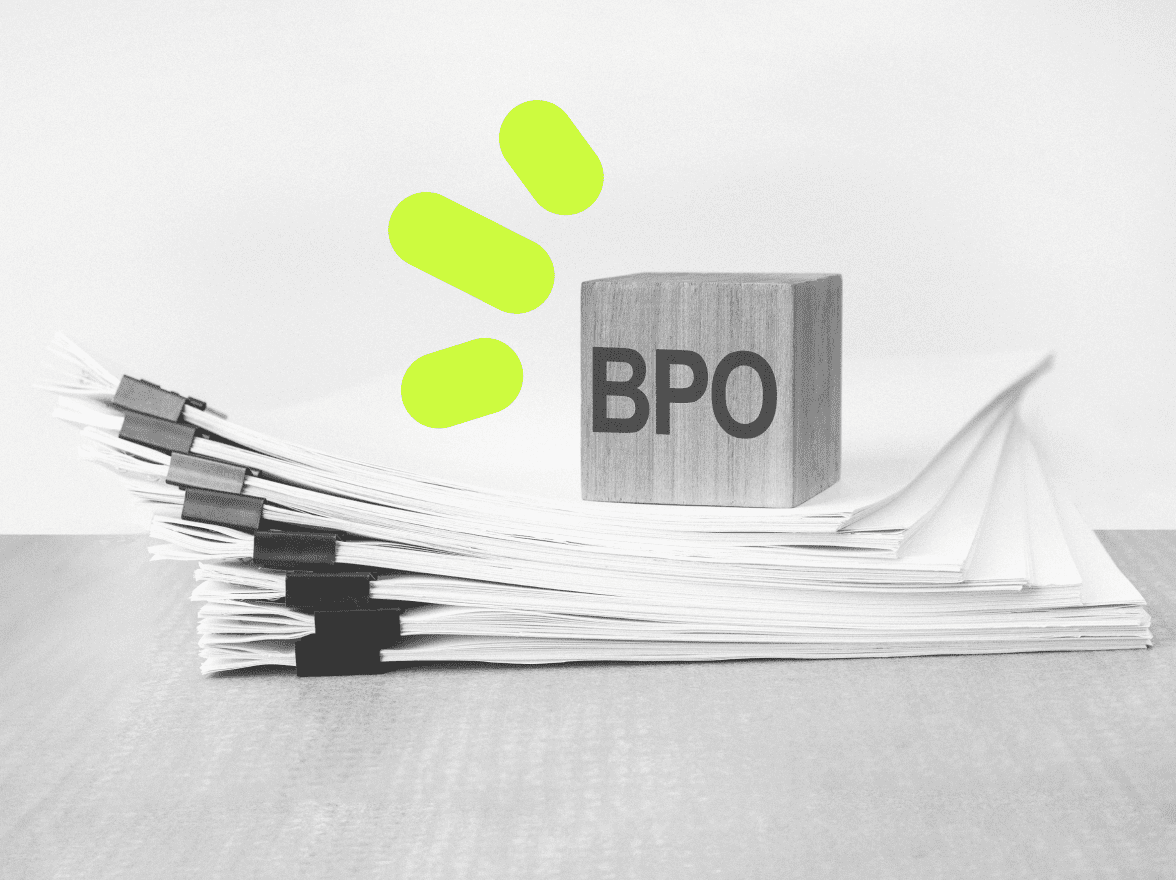Suddenly, business is booming. You’re an SMB – a small to medium-sized business – and you have more customers and clients than you’ve ever had before. However, that also means you have more callers, more connections that need to be made, and more customers needing help. You simply cannot handle it all on your own.
But with a BPO call center, you can.
What is a BPO call center?
Business process outsourcing (BPO) call centers let you delegate the handling of your business phone calls. Businesses commonly use BPO call centers to save money, improve customer service, and focus on their strategic goals.
These BPO call centers can be located in other countries, but they provide trained agents who handle calls professionally, often around the clock, which helps companies support their customers at any time. They’re also flexible, making it easy to scale up or down depending on business needs.
BPO call center vs BPO contact center
The terms BPO Call Center and BPO Contact Center are often used interchangeably, but they refer to slightly different services within the broader scope of BPO.
What does BPO mean for a call center? This type of outsourcing primarily focuses on handling phone calls. These can include inbound calls, such as customer service or tech support, or outbound calls, such as sales, telemarketing, and customer surveys.
On the other hand, a BPO contact center offers a more modern approach by managing customer interactions across multiple channels, including phone calls, email, live chat, SMS, and social media. This makes it ideal for businesses that want to provide a seamless and integrated customer experience.
Types of BPO call centers
According to Grand View Research, the global market for call and contact center outsourcing was valued at USD 97.31 billion in 2024. It is expected to grow at a compound annual growth rate (CAGR) of 9.8% per year from 2025 to 2030. It is pretty impressive, and judging by the numbers, BPO call centers are used relatively often.
There are, of course, different types of BPOs. To determine which one is best for you, it’s essential to consider your business needs and what you aim to achieve by partnering with a BPO call center provider.
By call type
Some BPO call center services are only designed to handle specific call types. Once again, the one you select will entirely depend on your business needs.
Inbound BPO call centers
Inbound BPO call center services only handle incoming calls. These can include customer complaints or general customer service issues.
Outbound BPO call centers
These involve the BPO agent making calls instead of receiving them. This can be for any number of reasons, such as responding to emails sent by customers asking for help or attempting to find new customers.
Virtual BPO call centers
Virtual outsourced call centers can be inbound, outbound, or both; the difference here is that no one is sitting in a cubicle amongst hundreds of others. Instead, they are sitting at home or wherever else they work from, as they’ve logged in online and are making calls over their computer.
By reaction type
Outsourcing can also work by “reaction” type – that is, the reason for the call being made. Some react to customers, whereas others are proactive.
Reactive call centers
These business process outsourcing call centers are by far the most common. People call them, and they react. These call center services are only available to assist when requested; they do not initiate calls on their own.
Proactive call centers
These BPO call center vendors, on the other hand, reach out to customers. Folks who work at these call centers will likely conduct some analysis first to determine what the customer (or potential customer) needs before making the actual call.
What do BPO call centers do?
The day-to-day work of a BPO contact center depends on, as you may have guessed, the type of call center. Here’s what the lives of call center agents look like.
Inbound
At an inbound BPO call center company, a given call center might:
- Help customers place orders: Although paying online has become increasingly popular, some individuals still prefer to order over the phone. These call center companies can help with that process.
- Answer questions about the company: Most people think of this type of BPO call center operation when they think of this type of business. You call, you get an answer from an agent.
- Address complaints: If callers calling in have complaints, they can take them in and record them for the client company.
- Marketing: Did a customer see an ad and want to learn about a sale? A call center can help clarify that for them.
Outbound
Outbound BPO call center services can:
- Respond to customer complaints: Let’s say a customer leaves a ticket on a website. These call center BPO organizations can then contact the customer and reach out to answer their questions.
- Telemarketing: Let’s face it. People may complain about telemarketers, but it’s an effective way of getting your product out there. Call center outsourcing can be a key way to handle telemarketing.
- Fundraising: Are you a charity? Outsourcing can help you raise money by handling your fundraising efforts.
- Research: Do you want to learn more about what people think about your product? Outsource the survey and have a team of callers gather the results.
Virtual
Virtual contact center BPOs, on the other hand, combine all of the above:
- Handles both incoming and outgoing calls
- Sales and telemarketing
- Answering customer support questions
How MightyCall can help
Since virtual call centers combine the best aspects while eliminating the worst about traditional call centers, it’s worth considering working with a virtual one. Or, if you run a call center, it’s worth making the switch. And when looking at MightyCall’s call center software, it becomes a lot easier to make that decision.
MightyCall offers critical online tools that can help the most complex BPO contact centers operate successfully:
- Auto dialers: With MightyCall, access three dialers — predictive, progressive, and preview. The 10-line manual control allows agents to manage up to 10 concurrent lines, providing flexibility and control in high-volume calling environments.
- Live call monitoring: Monitor the calls your employees make to help with coaching and improve performance. That includes features such as call listening, call whispering, barging, and call intercept.
- Call recording: This feature allows you to record both your outgoing and incoming calls.
- Advanced call analytics: Gain access to a comprehensive dashboard featuring valuable metrics that provide key insights into customer and agent communication dynamics.
- Call notes: If your employees can’t pass each other physical notes, no problem: Call notes allow them to leave “notes” on a given call, reminding or informing the next worker about what went on.
- Automatic call distribution: Maximize agent productivity by routing calls through preset rules.
- Ring groups: With this feature, wait times are dramatically reduced by routing calls to the entire team, allowing callers to get their answers quicker.
- Answering machine detection: Automatically distinguishes live calls from voicemail, connecting agents only when a person picks up.
- Local presence: Displays local caller IDs on outbound calls to improve answer rates and help build trust with prospects.
- Voicemail drop: Enables agents to instantly leave pre-recorded voicemail messages, saving time and speeding up outreach.
- AI call summaries: Automatically creates structured, easy-to-review summaries of each conversation, streamlining documentation and follow-ups.
MightyCall is made to connect businesses with their clients, which is why it’s a perfect BPO call center for your business.
schedule your personalized demo with our amazing team

Pros and cons of call center BPO options
When considering using a BPO call center, there are some important pros and cons to keep in mind. It’s crucial that you work through all of them before deciding whether or not a BPO is right for you.
Pros
- Price: It’s simply cost-effective to outsource the task to professionals. Yes, “outsourcing” has a bad stigma. However, call center business process outsourcing can save you money. And if you’re a burgeoning SMB, it’s understandable that you cut costs where you can.
- No need to train: A BPO will train their own employees to work for you. You don’t need to spend the time coaching or giving advice.
- No more closing time: With virtual call centers, people can work from anywhere in the world – literally (well, anywhere they have internet). This means that if you work with the right BPO call center, you can guarantee that you will never need to worry about closing time.
- Make more contact than ever: You have tons of people at your disposal, as opposed to the few you might be able to hire with your own company.
- Focus on what matters most to you: When the weight of having to focus on overseeing calls and connections is off your shoulders, you can focus on everything else that actually matters to you.
Cons
- People don’t always love telemarketing: If you decide telemarketing is the way to go for your business, you can make a lot of money. But if you become associated in people’s minds with a telemarketing brand, you may risk turning off potential clients.
- Some customers really do not like call centers: When it is obvious that a caller is speaking with a call center representative and not a formal company employee, callers can sometimes get frustrated. Balancing price and customer frustration can be crucial here.
- Uninformed agents: If all goes well, the call center should properly inform its employees. But if you have one that has not done its due diligence, they may not be able to provide all the answers customers are asking for, which can cause further frustration.
- You have divulged information: While these organizations are incredibly trustworthy, some business owners do not like having to divulge private information (or information about their customers). If you’re concerned about privacy, it’s a good idea to check reviews from previous call center clients.
- Your own customer service capabilities may atrophy: If you outsource your customer service capabilities for a while and then suddenly have to start doing customer service again for whatever reason, you/your company may have been rather out of practice for a while (especially if you’ve let go all of your customer service agents).
When to use business process outsourcing for call center activities?
When can it be useful to adopt these services? Here are a couple of examples:
- Getting your products out there: If you want to quickly inform a large number of people about your products, opting for a call center capable of telemarketing can be a smart approach.
- You anticipate a boom…: If you have yourself together, you might be able to predict when you’re about to hit it big. If you can tell that things are running smoothly, it might be a good idea to get ahead now.
- …or you realize you’re about to bust: Conversely, if you are firing on all cylinders while trying to deal with a huge amount of customers who need help, opting for a BPO call center can be a good pressure release valve.
- There are always people: Having trouble hiring folks? There will always be people working at call centers, which means you will always have customer support staff ready.
- You need to cut costs: Call centers are cheap. A lot cheaper than hiring staff. When it comes down to outsourcing, sometimes it’s just the numbers.
What businesses should use BPO centers?
But what types of businesses should use outsourcing? Here are a couple of suggestions:
- Insurance: Many people contact insurance companies frequently. Outsourcing those calls can be a good way of keeping everything flowing smoothly.
- Banking: Sometimes people need help with card fraud, and at other times, they simply have questions about how their account works. Not needing to keep folks who answer those types of questions can free your tellers up for other services.
- Energy: People have questions about the greenest energy a company offers, or how their bills are structured. BPO call centers can provide the answers.
- Medical billing: Similar to insurance, people often have questions about their medical bills. Outsourcing means those questions are still answered in a timely manner.
- E-commerce: If you run a small website, you may not have on-staff salespeople. Outsourcing allows you to save big while having reliable and effective customer service.
How to integrate a BPO call center into business operations?
So you’ve decided that a BPO can be right for you. But how do you actually implement a BPO call center? It’s actually relatively easy.
1. Double-check your numbers
Does this work for you? Are you certain? It’s really important that you know that this is what you want to do. Find out everything it will require of you. Not only will this save you time and money, but it will also help you make the right choice. Because switching may include letting go of some current staff, and if you do that only to realize that perhaps letting them go was not the best decision for you, you may come to regret it.
2. Choose a type of call center you want to go with
Are you only looking for inbound calls? Do you want to focus on outbound? How about virtual calls? Just because you decided you want to go with outsourced call center agents, it doesn’t mean you have also inherently figured out how you want to take advantage of them.
3. Pick a reliable service provider
When picking a BPO call center provider, it’s important to keep a few things in mind, like
- Price: How much will it cost you? Are they cheaper than what you’re already using?
- Location: Can they provide 24/7 service? Are they in your time zone or elsewhere?
- Specialization: Is it a call center that has worked in your field before? Some outsourcing companies are jacks of all trades, but others may implicitly understand how yours works.
4. Make sure they have the information they need
When sharing information with your selected BPO center, be sure not to withhold any details they might need. They do not need everything, obviously, but if you’re overly careful, they might be deprived of the key pieces of information they need to do their job.
5. Figure out the legal situation
If you are working with a call center outside the United States, you may want to consider consulting a lawyer. Not out of concern that you are doing something illegal – you aren’t – but just to make sure that everything, when it comes to taxes and the like, is straightforward. There’s also the question of privacy; you are handing over customer data to a third-party company, so you want to make sure you’ve dotted your i’s and crossed your t’s.
6. Work on the details of your transition
How long do you want to take to transition to the BPO call center industry? Do you want to make it happen as soon as possible, or do you want to drag it out? Do you currently employ individuals with contracts that cannot be terminated quickly and who will be replaced by the BPO? There are several final details to consider before beginning your transition.
7. Check in with the results
Once you proceed, the conference center should operate like an automated process: you will no longer need to provide input unless it is specifically requested. However, that does not mean you should not pay any more attention. BPO call center agents are the first thing callers associate with your business, which means that if they are not doing a good job, it will harm your image. That means you should check in on occasion; success rates, call connections, satisfaction from clients, and more are all things you should be on the lookout for.
Potential obstacles in outsourcing your call center
Outsourcing your call center can offer significant benefits, but it also presents challenges that require proactive strategies. Here are three key challenges and their solutions:
Loss of brand voice and consistency
Outsourcing can lead to a disconnect between your brand and the customer experience, especially if agents lack a deep understanding of your tone, values, or priorities.
Based on insights from Chris Percival, CJPI, here’s what he found to be challenging, and the solution he thinks is the most effective:

“One major issue is loss of brand voice. Your call centre is often the first direct human interaction a customer has with your business, and if the outsourced team doesn’t fully understand your tone, values, or priorities, that experience can feel generic — or worse, disconnected. The key to making it work is tight integration: shared values, deep onboarding, clear feedback loops, and metrics that reward the right outcomes — not just the easy-to-measure ones.
– Chris Percival, Founder & Managing Director, CJPI”
Limited flexibility and slower response times
Outsourced call centers can sometimes feel less flexible, especially when they’re juggling multiple clients. To stay ahead of urgent changes, set clear expectations around response times and escalation processes right from the start. Ensure you have direct access to key contacts at the outsourcing company, and look for partners who are recognized for their flexibility and ability to adapt quickly.
Data security and compliance risks
Handing over customer interactions to a third party increases the risk of data breaches or regulatory non-compliance. Without strict security protocols and regular oversight, you risk damaging your reputation and potentially violating laws such as GDPR or HIPAA.
Based on insights from Sinoun Chea, ShiftWeb, here’s what was marked as challenging:

“Outsourcing a call center can lead to complexities in handling sensitive customer data. When you entrust another company with your call operations, you risk potential data breaches or mishandling, which can harm customer trust and your business’s reputation. One approach is to establish a rigorous vetting process for potential partners, including thorough evaluations of their security protocols and compliance certifications. Consider setting up a framework for regular audits and assessments to ensure they maintain the integrity and confidentiality of your customer data consistently.
– Sinoun Chea, CEO and Founder, ShiftWeb”
Use a BPO call center for your business to deliver high-level customer service
So, what is a BPO call center? It’s an organization that lets you delegate business communications with clients to professionals, freeing you up for other strategically important tasks and allowing you to develop your business further. This service allows you to continue doing what you do best while also meeting your customers and callers where they need to be met. It guarantees that “you” are always available for them, no matter what time of day, meaning that BPO call center agents can help dramatically expand your reach and satisfy your customers for an affordable price.




























